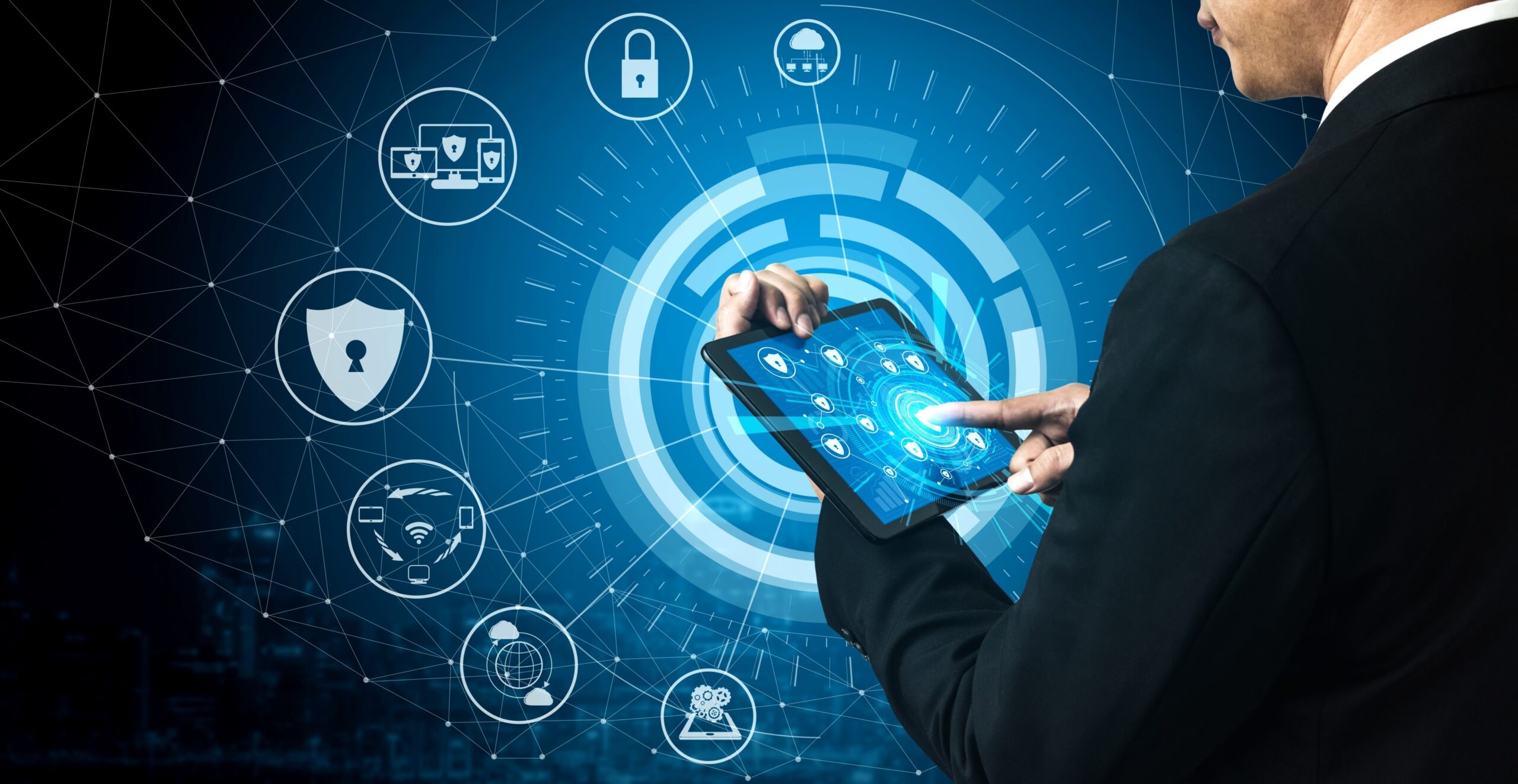Cybersecurity refers to protecting your hardware devices, software programs, and data from different cyberthreat launched through the internet. As a result, these threats can be targeted towards individuals or enterprises to seek unauthorized access to sensitive data.
Moreover, amidst the COVID-19 pandemic, the US FBI stated a 300% increase in reported cybercrimes & recorded a massive 12,377 Covid-related scams this summer. Out 9.7 million healthcare records were compromised in September 2020.
As per Cyber Security Statistics, 95% of cybersecurity breaches occur due to human error.
Best Tips to Protect Yourself against Cyber Threats
- Keep All Programs and OS Updated
Software updates are crucial for your digital safety and cybersecurity. Many times, bugs in your software or the OS can lead to security vulnerabilities. Hackers target these weak spots and easily use them to launch various types of cyberattacks.
Regularly updating all your software, including your OS, will ensure that your devices are always secured from the latest cyber threats.
- Use Antivirus Software
A good antivirus is your best bet when protecting your devices against cyber threats. It will regularly scan your devices for issues and take appropriate action before any losses can happen.
However, when choosing an antivirus, make sure that it has all the latest and advanced features like anti-malware, anti-ransomware to name a few.
Again, as we mentioned earlier, to ensure complete safety against cyber threats, you must regularly update your antivirus program.
If you haven’t installed an antivirus on your devices, now is the time. There are many options available in the market, but before investing in an antivirus, always do your research. Bitdefender is the most popular name in the antivirus industry and the one which I use. If you need protection for multiple devices in your household (Windows, Mac, Android, or iOS devices), I suggest trying the Bitdefender Total Security program. With a single subscription, you can protect upto ten devices in your household. To save you money in the long run, you can always lookout for the best Bitdefender deals online.
- Choose Strong and Unique Passwords
Passwords are by far the easiest and most convenient way to secure your data online. However, if not set correctly, they also become easy targets for hackers to gain access to your digital assets. Know this, 57% of people who have already been scammed in phishing attacks haven’t yet changed their passwords, while still ‘123456’ remains a very common password.
To ensure complete cybersecurity, use strong and unique passwords for all your accounts. Never use the same passwords on all your accounts.
If you find it difficult to generate your unique passwords, you can use a password generator app. These apps help generate unique and strong passwords for all your accounts.
To further enhance your security and add an additional layer of protection, you can even use a two-factor authentication system offered by most companies these days. This way, even if your login credentials are compromised in any way, no one can access your data without the second security pass.
- Use a Secure VPN While Using Public Wi-Fi Networks
A majority of commercial spaces nowadays offer Public Wi-Fi hotspots for easy access to the internet. However, most of these Wi-Fi networks usually follow the least security protocols. They are an easy target for hackers to intercept and steal your data being transmitted on the network.
If you ever have to access the internet from these public Wi-Fi systems, make sure you do it through a secured VPN connection. A VPN encrypts all the transmitted data over the network to ensure complete privacy and security.
If you want to surf safely on the web, I recommend trying Surfshark VPN. The best part about this VPN is that it is user-friendly, protects unlimited devices, and above all, at a very affordable price. Check out all the Surfshark deals available online and choose the one that suits you the best and provides the best value for money.
- Use Firewall
Firewalls play a crucial role in maintaining network security. It does this by funneling out any unauthorized access requests to the network from potential threats. It acts as a barrier between your device and the external world.
However, make sure that you regularly update your firewall software for maximum protection.
- Keep Your Mobile Devices Secure
Mobile phones have fast become our preferred choice to connect to the internet on the go. From accessing social media to emails to online bank transactions, we almost do everything on it.
However, If not done with proper care, mobile devices can become targets for cybercriminals to access your data.
Make sure you use good antivirus, secured lock screens, and a VPN connection to access the internet, even on mobile devices, for complete protection.
- Beware of Email and Phishing Scams
At times simple emails or links on messengers can have malicious content hidden in them. These can lead the user to enter and leak their credentials to third-party hackers. According to Verizon’s 2020 Data Breach Investigations Report, amongst all phishing attacks, 96% are delivered through email, 3% through websites & 1% through mobile phones.
While antivirus programs can protect you from phishing attacks upto a certain extent, it is you who can easily avoid being extra vigilant when entering any of your credentials on any site online.
- Keep Yourself Safe While Surfing and Shopping Online
Be extra cautious when surfing or shopping on unknown or new websites. Double-check the authenticity of any portals that ask you to share your details or login credentials. This way, you reduce the risk of falling prey to online scams and cyber attacks.
Last but not least, always stay updated and well informed about whatever is happening around you in cyberspace. Look out for news and blogs about the latest cyber scams and always stay alert on this topic.
Conclusion
There is a cyber attack on a device every 39 seconds on average. Amongst these, nearly 43% of the attacks target small and medium businesses amounting to $3.9 million across this segment.
There are no second thoughts that we will become more and more dependent on technology and the internet for most of our activities as we progress in time.
But, as we make this shift, we should also ensure that we upgrade our security tools and knowledge for maximum protection against cyber threats.





